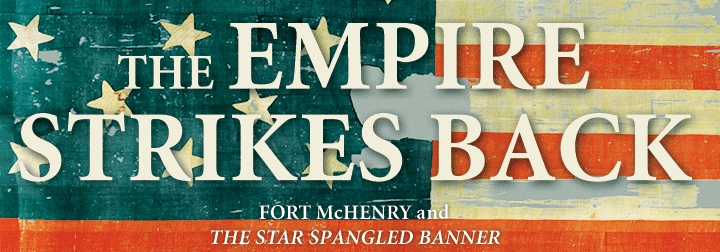All Library locations will open late Friday, February 27 at 11 a.m. due to an all staff meeting.
Two hundred years ago this month, during the War of 1812, the United States was in desperate straits. British forces had burned Washington, D.C. and threatened to do the same to other Eastern seaports. The enemy chose to attack Baltimore, the nation’s fourth-largest city.
America won an improbable victory at Fort McHenry, and Baltimore was saved. Washington lawyer Francis Scott Key – inspired by the sight of his country’s flag flying in defiance of 25 hours of British bombardment – scribbled a four-stanza poem: Oh say can you see ...
His “Defence of Fort McHenry” became a popular patriotic song, “The Star Spangled Banner,” and ultimately our national anthem.
Military historian Richard Barbuto of the U.S. Army Command and General Staff College at Ft. Leavenworth discusses the battle that stirred Key and underscored America’s resolve to preserve her sovereignty.
